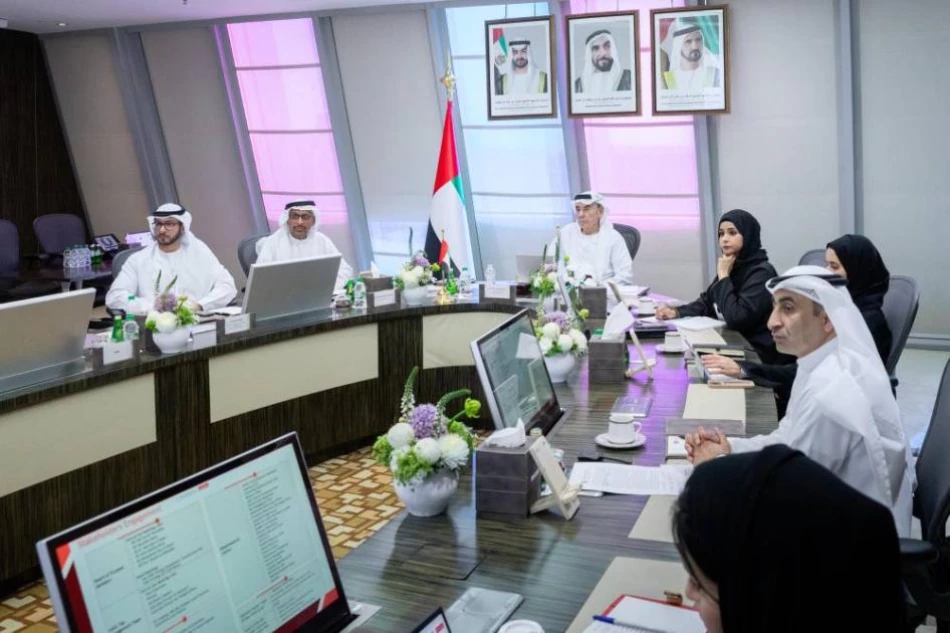
UAE University Committed to Academic Excellence, Says Vice Chancellor Zaki Nseibeh
UAE University Climbs 100 Places in Global Rankings as Nation Doubles Down on Academic Excellence
The United Arab Emirates University has achieved a remarkable leap of 100 positions in the prestigious Shanghai Academic Ranking of World Universities for 2025, landing in the 701-800 global bracket and securing second place nationally. This dramatic improvement signals the UAE's accelerating push to transform its higher education sector into a regional powerhouse that rivals established academic hubs in Singapore and Hong Kong.
Strategic Vision Aligned with National Priorities
During the university's Board of Trustees meeting for the 2025-2026 academic year, held at the Al Ain campus, Cultural Advisor to the UAE President and University Chancellor Zaki Anwar Nusseibah emphasized the institution's commitment to academic excellence and strategic advancement. The timing of this announcement is particularly significant as the UAE positions itself as a knowledge economy leader in the post-oil era.
The board approved a comprehensive strategy for 2027-2029, specifically designed to align with the UAE's National Strategy 2031. This coordination between institutional and national planning reflects a broader Gulf trend where governments are directly steering university development to support economic diversification goals.
Specialized Excellence in Critical Sectors
Water Resources and Agricultural Innovation
The university's entry into the top 150 globally for water resources and top 200 for agricultural and financial sciences represents more than academic achievement—it demonstrates strategic focus on sectors crucial to the UAE's future sustainability. In a region where water scarcity and food security are existential challenges, these rankings position the university as a regional research hub for climate adaptation technologies.
Research Impact Drives Recognition
The ranking improvements stem from high-impact research outputs, a metric that carries significant weight in global university assessments. This focus on research quality over quantity mirrors successful strategies employed by universities in Singapore and Switzerland, where targeted investment in specific research areas has yielded outsized international recognition.
Institutional Expansion and Talent Acquisition
The board discussed enhancing academic leadership through new faculty appointments and recruiting international talent to accommodate growing student enrollment and expanding research activities. This aggressive hiring strategy reflects confidence in sustained government support and suggests the university is preparing for significant growth in the coming decade.
The approach parallels successful models in other emerging academic centers, where rapid faculty expansion—when coupled with adequate resources—can accelerate institutional development and global competitiveness.
Golden Jubilee Milestone and Future Trajectory
The university's preparation for its 50th anniversary celebration, launching November 10, 2025, comes at a pivotal moment. The institution is leveraging this milestone to announce new strategic partnerships aimed at supporting UN Sustainable Development Goals, positioning itself as a globally relevant institution rather than merely a regional player.
This timing suggests the UAE is using the anniversary as a platform to announce ambitious expansion plans and international collaborations that could further accelerate its rise in global rankings. The focus on sustainability partnerships also aligns with global investor and governmental priorities, potentially attracting additional research funding and international students.
Regional Competition and Global Implications
The UAE University's rapid ascent occurs amid intensifying competition among Gulf states to establish premier higher education institutions. Saudi Arabia's massive investments in NEOM University and Qatar's Education City demonstrate that the region is becoming a battleground for academic prestige and the talent attraction that follows.
For international education markets, this development signals that Gulf universities are transitioning from regional players to legitimate competitors for global talent and research partnerships. The implications extend beyond academia—strong universities are increasingly viewed as essential infrastructure for attracting multinational corporations and fostering innovation ecosystems that drive economic growth.
Most Viewed News

 Omar Rahman
Omar Rahman






